Education in the Age of Uncertainty: How Will Behave and Prepare
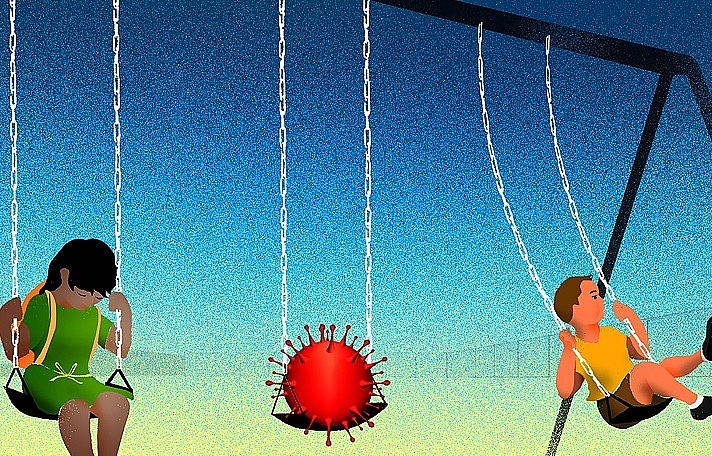 |
| Education in the Age of Uncertainty |
Blockade, isolation, social distancing lead to stagnation and shutdown of operations on a global scale; We are amazed at what happens, not knowing if we can return to normal as before and when. The concept of uncertainty becomes apparent, no longer ambiguous.
The big question facing humanity, especially the younger generation, is how we will behave, and how to prepare for an increasingly unpredictable world.
We will try to answer, the following stand out: “What school model can I propose taking into account my identity? How to accompany our students in the construction of their person? How to develop a critical judgment in the face of excess information “How do algorithmically controlled social media affect students? How do you prepare students for a world of ideological polarization?”
Uncertainty: To Know or Not to Know?
When faced with 'uncertainties', we are often worried, even somewhat afraid, bewildered, doubtful while always wishing to predict what will happen. “Uncertainty,” in the usual sense, is “unknown” or “undetermined,” which, of course, is invariably present. However, the way uncertainty is interpreted and perceived can be very different, leading to different ways and attitudes to react and respond to uncertainty. What is important is how uncertainty in this age should and should be understood, and with all of our contemporary tools, how we need to deal with uncertainty.
In this article, “uncertainty” is reflected from the lens of science through relation to scientific concepts: the famous “Uncertainty Principle” in Heisenberg’s Quantum Physics ( 1927) and “Uncertainty of Measurement” in International Metrology.
We all know that international measurement requires strict accuracy and objectivity, even though this is an active human "observation" process and a product of the analysis of results. logical observations (reason). Modern technical metrology, introduces the concept of “the uncertainty of the measurement (U)”2 to “reflect an incomplete understanding of the value of an object. measurement object” that this lack of understanding comes from various causes, both objective and subjective, such as inadequate definition of the measurement object, limitations of measuring tools and methods, or other problems. individual bias of the measurer… The measurement result is the information about the object represented by a probability distribution function. We cannot give a specific measure, but only know a range of values with the probability density of each value. Uncertainty is an additional parameter to a measurement result that can be estimated by its magnitude, knowing the “sources” that cause it, and the proportion of each of these “sources” to the overall uncertainty. (GUM 1995). This means that uncertainty is controllable to a certain extent by understanding and controlling for the factors that cause uncertainty.
However, to what extent U can be controlled is not an easy question to answer. Can U be asymptotic to zero? Heisenberg's Uncertainty Principle in modern quantum physics states that objectively there always exist pairs of physical quantities (X, Y) that are dual to each other (e.g. position – momentum of a particle) of the object whose product of two variances when measuring these two quantities simultaneously is always greater than or equal to a constant (Planck constant h = 6.635.10-34 Js). Example where (X, Y) = (x, p) is the position-momentum of a particle: σ_x.σ_p≥h. That is, the more precisely you try to determine one quantity (decrease in uncertainty), the more you will pay the price for the inaccuracy of the other (increasing uncertainty). This principle suggests that any measured object contains information that cannot be precisely determined at the same time. This means that, no matter how hard we try to control U, it will not be possible to eliminate U. There are always objective uncertainties that we need to be willing to accept.
Thus, there will be no uncertainty until the 21st century, but in the context of extensive globalization, the world has become 'flat' and 'virtual' with the Internet and information communication technology applications. , 'uncertainties' propagate at breakneck speed and occur on a larger scale. These are unprecedented challenges, and opportunities only come if we master and master knowledge. Not to mention that the contemporary world increasingly contains complex multi-linkages, 'uncertainty' has also become much more complex.
| Education in an uncertain era needs to expand the learning space so that young people can gradually approach the real world so that when they leave school, they will be confident and brave enough to step in and take control of their work and life. . |
Luggage for Young People
Over the past two years, the world, whether rich or poor, developed or developing, has been struggling to fight the epidemic. Faced with personal and community survival decisions such as to inject or not to vaccinate against COVID-19, to wear or not to wear a mask, to distance or not to distance, etc., we, both as individuals and as a community, confusion, confusion, and division.
There have been costs, with the lives of millions of people. At the height of the pandemic, every day there were thousands of chaotic information from all kinds of sources with many conspiracy theories spreading. In 2020, a few months after the outbreak of COVID-19, there were a series of breaking media broadcasts in the UK, the Netherlands, Belgium, and Ireland... because some people believed that the virus was spread through the transmission network. 5G wireless communication [5]. In Vietnam, while medicine does not have an official, clear and specific answer about the virus, transmission mechanism or medical solutions, there have appeared many "healers" to treat COVID-19 with tips. . What do we need to be able to defend ourselves?
What to bring to prepare for the 'uncertainties'?
The Baggage of 'Knowledge' of Young people
 |
| Educational challenges in Latin America and the Caribbean region during COVID-19 |
For any industry, the core knowledge of the industry is natural. However, the modern world shows that it is impossible to separate sectors and fields, but they exist bound, dependent and interacting with each other. Therefore, in addition to the core knowledge of the industry, it is also necessary to grasp the knowledge of nearby industries and related industries. Reducing separation is the limit of uncertainty. Modern social problems require interdisciplinary solutions, so interdisciplinary knowledge is becoming increasingly important. The story of an interdisciplinary solution that has been talked about for many years is most evident during the COVID-19 pandemic. While the country is on fire, fighting epidemics at the national and global level is a problem that cannot be solved only by epidemiological models or health solutions, but also requires calculations on equity and social security. society, on social psychology and community approach.
In addition to specialized knowledge, it is also necessary to equip the general knowledge that any citizen of the 21st century should have. The 'Partnership for 21st Century skills' organization, or P21 for short, has surveyed, developed and issued the 21st Century Skills Framework (Figure 1), which clearly outlines the general knowledge block including core subjects and core subjects. interdisciplinary topics. This is a handshake between educational institutions and businesses to set requirements and standards for human resources in order to close the gap in skills and abilities of graduates when entering the labor market.
The core subjects that students in the 21st century need are mother tongue, global language (English), Humanities, Maths, Economics, Science, Geography, History and Governance - Civil liability. The interdisciplinary general knowledge block includes: (i) Understanding of global issues (cultural diversity, religion, climate change...), (ii) Understanding Finance, Economics, Business (the role of the economy, personal finance...), (iii) Understanding civil roles and responsibilities (civil rights, human rights, state-citizen relations...), (iv) Understanding health and health awareness (mental and physical health protection measures such as stress reduction, medical risk avoidance, nutrition, etc., personal health monitoring and control, safety and medical issues community economy...), (v) Understanding of the Environment (natural environment - ecosystems, water resources, energy, climate, human impact on the natural environment - population growth, consumption resource consumption, air pollution, water pollution, deforestation, etc.).
It can be seen that the skill set has set a fairly broad block of social knowledge content, requiring students to understand the environment in which they live, and to have a connection and attachment to the surrounding environment. These are extremely important baggage for young people in the uncertain era of the 21st century.
| The contemporary world contains more and more complex multi-linkages, 'uncertainty' has also become much more complex. |
Read More: What Is Online Education and Changes from The Covid-19 Pandemic?
The baggage of 'skills' of young people
Lack of work skills among young people when entering the labor market after graduating from university is a problem of many countries, including the US. The 21st Century Skills Framework is a guide to help bridge the gap between university training and business needs. Although built by leading American businesses and educational institutions, it can be seen that this skill set includes a relatively complete range of important skills to help young people develop their capacity to cope with any situation. in both living, working, and learning environments around the globe.
P21 offers three key skill blocks for students in the 21st century: (1) Academic and Creative Skills, (2) Technology, Communication and Information Skills, and (3) Life and Life Skills job.
The skills in Group (1) are organized into three subgroups: Creative and Innovative (students are expected to think creatively and collaborate with others, and execute ideas. creative); Critical thinking and problem solving (requires learners to reason effectively, think systematically, have opinions and make decisions, and be able to solve problems); and Communication and coordination (students need to express and communicate clearly, effectively, cooperatively with others).
In group (2), there are information skills that require learners to be able to access information quickly and effectively, evaluate information appropriately, and use and manage information effectively. effective, safe, in accordance with ethical and legal standards. In addition, ICT skills (technology, information communication) require learners to analyze media from understanding the content and purpose of media messages, and create media products. through understanding and using creative communication tools and appropriate discourse in a multicultural environment. ICT (Technology, Communication, Information) skills require learners to apply technology effectively, including the appropriate use of digital devices and social networks to exploit and evaluate. , manage and produce information, and use information and information technology in accordance with codes, ethical standards and laws.
Life and career skills group (3), including Adaptation and Flexibility, Self-Direction and Initiation, Cross-Cultural and Social, Performance and Accountability, and Leadership and Accountability skills.
In a simpler way, the World Health Organization (WHO) identifies basic life skills including Decision Making and Problem Solving, Critical and Creative Thinking, Interpersonal and Communication skills, Empathy and Self-Awareness, and Managing Emotions and Stress[3]. WHO also emphasizes the importance of Psychosocial skills that can be developed with time and effort. The complex living and working environment in the age of globally competitive technology requires students to be able to adapt to the context and work effectively in conditions of 'ambiguity', compromise and balance of perspectives to reach solution (5).
Among these skills, groups (2) and (3) are the most important skills with age characteristics to deal with uncertainty.
The 'Attitude' Baggage of Young People
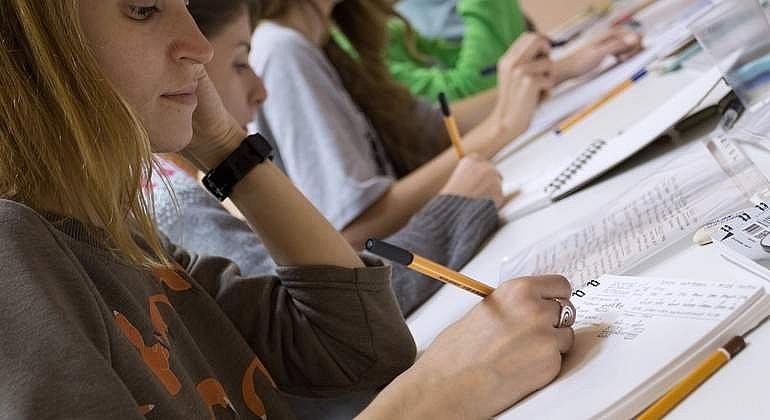 |
| To Reinvent Education In The Age Of Uncertainty |
If we look closely at the skills in the 21st century citizenship skill set that P21 sets out, we can see that there is a part of the 'attitude' that young people need to have in it. Nevertheless, the scientific explanations of uncertainty at the beginning of the paper help to draw some important hints. Uncertainty is inevitable, so it is important to be aware of uncertainty. We know what we don't know. We know how much uncertainty can be controlled. We can anticipate where uncertainty comes from, but we are not blind to the future and the future is uncertain. Such awareness helps us to adopt an appropriate attitude to uncertainty.
It is the readiness, initiative, and preparation, instead of panic, fear, doubt and then abandonment or wrong decisions. How we prepare to deal with uncertainty will determine our future success in a world filled with uncertainty. Starting with assumptions, and using science and technology tools to research, test assumptions, and prepare scenarios (scenario) is one of the things we can do.
Who is responsible for helping young people prepare?
P21 with their proposed 21st Century Skills Framework clearly shows that this role belongs to the school, to the mainstream education system, and shows that it is also the responsibility of the whole society and the family. The school, through its educational program, pedagogy, standards including school standards, teacher standards, student outcomes, etc., is responsible first and foremost for the preparation of knowledge. necessary knowledge for learners, is the main environment for learners to develop competence.
These competencies need to be forged and further developed and perfected in practical environments such as family, community, social networks, etc. Education is obviously not just the task of the national education system. people, schools, teachers, and it is not limited or prevented, protecting learners in a pure environment. Education in an era of uncertainty needs to expand the learning space so that young people can step by step approach the real world so that when they leave school, they will be confident and brave enough to step in to master work and life. .
........
Note:
*Definition in GUM 1995: The uncertainty of the result of a measurement reflects the lack of exact knowledge of the value of the measurand. The result of a measurement after correction for recognized systematic effects is still only an estimate of the value of the measurand because of the uncertainty arising from random effects and from imperfect correction of the result for systematic effects.
*P21 includes members who are top employers in the world such as Adobe, HP, Intel, Microsoft, Cisco, Apple, Oracle, Lenovo, Ford, Dell, major educational and testing organizations such as ETS, Pearson, EF Education, Discovery Education, Blackboard, and many other technology companies.
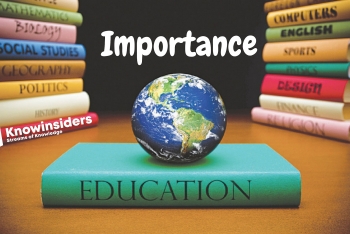 What Is The Importance of Education In The Modern World What Is The Importance of Education In The Modern World Education is a top priority for every country. Because the role of education in all aspects of life and society is huge, especially in the ... |
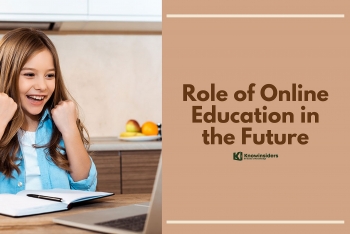 How Online Education to Become Mainstay of Post-Pandemic How Online Education to Become Mainstay of Post-Pandemic Since the outbreak of COVID-19 and lockdown, one of the biggest changes in our everyday life was the way education systems works. Wonder if online ... |
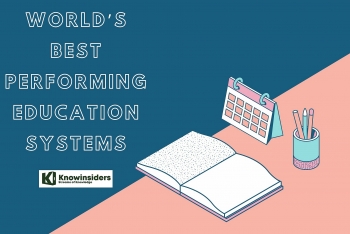 10 Best Performing Education Systems In The World and Why 10 Best Performing Education Systems In The World and Why The pursuit of the greatest education has always been a top priority for human civilization. Which country has the best performance in education in the ... |























